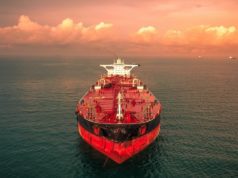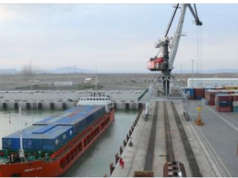Iran plans to complete the construction of two rail sections within the framework of the North-South project by September, head of the Iranian Railways Said Mohammadzadeh told Trend.
These two sections include the 162 kilometers long Gazvin-Resht and 10 kilometers long Astara (Iran) – Astara (Azerbaijan) railways.
The International North-South Transport Corridor is meant to connect Northern Europe with Southeast Asia. It will serve as a link connecting the railways of Azerbaijan, Iran and Russia.
The corridor is planned to transport 6 million tons of cargo per year at the initial stage and more than 10 million tons of cargo in the future.
“Another section of the transport corridor – Resht-Astara (175 km) – is planned to be completed within three years with the help of a loan from Azerbaijan. Negotiations on financing the construction of this site are already at the final stage,” Mohammadzadeh said.
The construction of Resht-Astara section will cost Iran $1.1 billion, part of this funds, $500 million, is planned to be attracted as a loan from the Azerbaijani government.
Head of the Iranian Railways noted that over the past four years, Iran has invested $1 billion annually in railway projects, and in the next five years plans to invest about $1.5-2 billion annually.
Today Iran focuses on rail freight transportation, according to Mohammadzadeh.
He touched on another railway project, which is designed to connect Kazakhstan and Turkmenistan with the Iranian port of Bandar Abbas in the Persian Gulf.
Mohammadzadeh noted that last year the cargo transportation by this route reached 3 million tons, and after a certain modernization 10 million tons will be achieved.
Along with making a great contribution to the diversification of Azerbaijan’s economy the project is expected to turn the country into a major transport hub.
The project, which is considered to be a strategically important and advantageous in terms of time of transit cargo transportation, is also expected to bring great economic benefits. The route, part of which will pass along the western coast of the Caspian Sea, from Russia to Iran through Azerbaijan enjoys several advantages compared to other transport such as Suez Canal-the Mediterranean Sea-Northern Europe and the Turkmenistan-Kazakhstan-Russia-Northern Europe routes.






